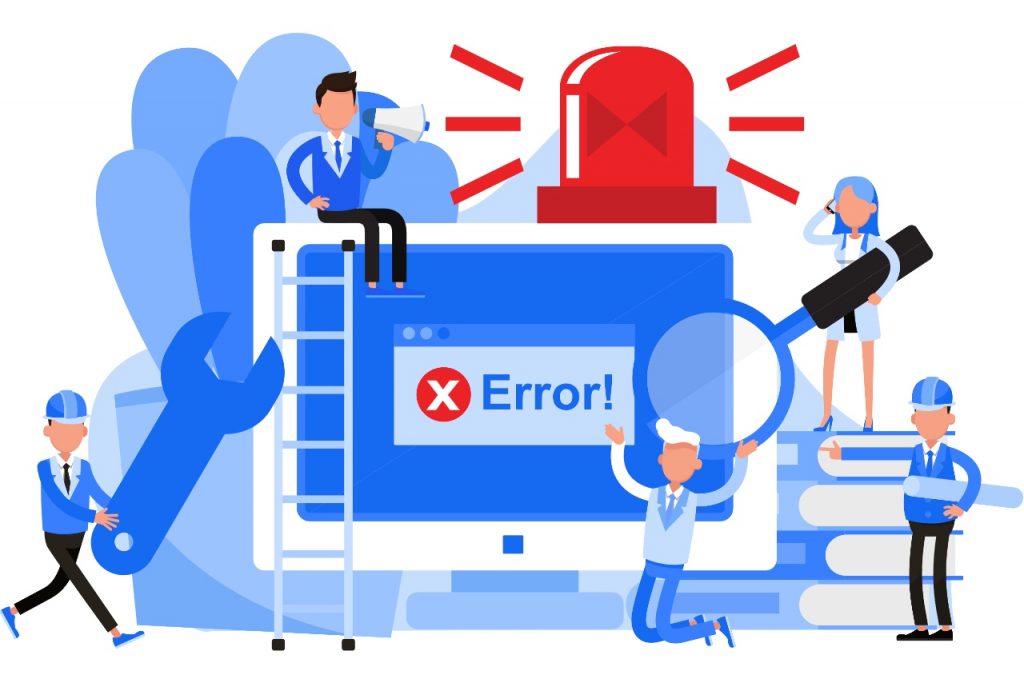1. Content carelessness
No doubt, you’ve heard the expression, “Content is king.” Your company needs to create content that is original, fresh, and human-friendly: Original – Although Google doesn’t automatically regard all duplicate content as spam, too much duplication will be penalized. It means, for instance, that relying on copy-and-pastes from other sites can be harmful even if you provide full attribution and follow all fair-use guidelines. If you own multiple websites and you put the same content on all of those sites, you aren’t doing yourself any SEO favors either. Fresh – Failing to create new content and to update older content is a great way to get lost in the crowd, disregarded by search engines and potential customers alike. Human-friendly – You’re writing for people, not search engines. Google has worked hard to improve users’ search experience, ensuring that when they follow a link, they get information relevant to their search, rather than a string of meaningless keywords. Keywords are excellent and useful, of course, but only in the proper context, and “keyword stuffing” can harm your rankings and ultimately hurt your business.
2. Social sloth
“Social signals” have become an ever-more important factor in SEO. Your participation on social media sites such as Google+, Facebook, Twitter, and Linkedin is becoming increasingly important for your rankings. Google and Bing look at factors such as how many tweets and re-tweets a URL has; the authority of the person or company that’s re-tweeting; the number of Facebook shares a URL has; and so forth. If you’re missing in action on social media, you’re missing a significant piece of the SEO puzzle, and more importantly, you’re missing out on opportunities to engage your existing customers and possibly reach new ones.
3. Blog blahs
If you don’t have a blog or the one you have is lackluster, you’re compromising your SEO efforts. An active blog gives you a chance to utilize long-tail keywords, i.e., searches using three or more words, and including adjectives and geographical locations. Long-tail keywords make up about 70% of Google searches. But remember that thing about the content being king. Your blog should be relevant to your business in some way, and it should be engaging. You need to continuously supply it with fresh, relevant content that will provide something of value to readers, even if they don’t become customers.
4. Link laxity
It’s great to be noticed and linked to by other sites – except when it isn’t. Backlinks are only useful if they’re the right type of links; bad links will only earn you penalties from Google. It means that quality is much more important than quantity. Quality means that the links are well earned: they are relevant to your business and, hopefully, come from reputable, high-authority sites. That’s why it’s not a good idea to hire an SEO company to do volume link building. Despite the changes, Google has made and the many warnings against it, some SEO companies still use offshore and other link building tactics that violate Google’s webmaster guidelines. One way to be sure you’re compliant is to check out your backlink profile and get rid of bad or useless links. Google has created a free toolset, Search Console, aka Webmaster Tools, that can help you do determine your site’s SEO fitness. One of WMT’s strengths is that it lets you view practically all of the links to your site. If you run across any undesired backlinks, you can contact the webmasters and ask them to remove them. If that doesn’t work, WMT also offers a last-resort “link disavow” tool – which lets you tell Google to disregard the bad link(s) when assessing your site. Bottom line: Bad links will come back to haunt you. Best to banish them now.
5. Ad apathy
Organic SEO can accomplish a lot, but sometimes it needs a little help. After all, it’s nearly impossible to get consistently high rankings for all of your targeted keywords. Google’s AdWords could provide just the reinforcement you need. Pay-per-click advertising can allow your company to target low-volume, high converting long-tail keywords that would be difficult to obtain organically. There’s a lot of competition out there, so you need to use every available tool. If all of this seems like too much to handle, don’t panic. You’re not alone. Many business owners and managers are too busy to maintain their companies’ web content, and they simply lack the expertise to do an adequate job. Depending upon your company’s needs, you may need to add an SEO professional to your permanent staff or hire an independent SEO firm.
